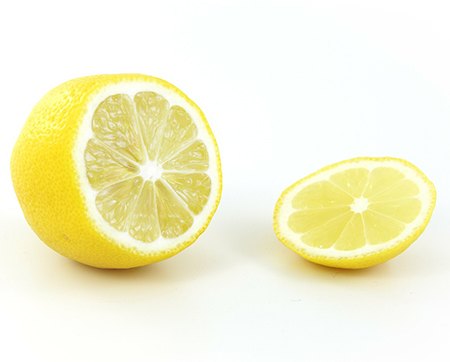Bio C Vitamin C
Vitamin C is named ascorbic acid which means: The acid that counteracts scurvy. Vitamin C is a water-soluble vitamin and an antioxidant that is part of several intra-cellular redox systems involved in neutralising reactive oxygen compounds (also known as free radicals). Vitamin C is a so-called co-factor in different enzymatic processes. Vitamin C distributes itself through the body's water phase, which includes everything that is not fat and bone tissue.
The highest concentration is found in white blood cells and blood platelets. The adrenal glands and pituitary gland plus the testicles and ovaries have particularly high concentrations of vitamin C. The vitamin C concentration in the brain is 10 times higher than what is found in blood.
Mammals produce their own vitamin C
Almost all mammals are able to synthesize vitamin C in their adrenal glands by means of an enzymatic conversion of glucose. In these animals vitamin C works like a hormone. In humans, on the other hand, the gene of the vitamin C-producing enzyme contains a number of mutations resulting in an inability to produce the vitamin and therefore we depend on it from our diet.
Properties of Vitamin C:
- Is an important antioxidant that is involved in intra-cellular redox systems. The exact mechanism of action is not known.
- Is almost fully absorbed from the intestine in dosages of about 100 mg daily. At higher dosages or in the case of diarrhea, the absorption is reduced.
- Is able to regenerate vitamin E which have been damaged by encounter with free radicals
- Maintains the enzyme propyl hydroxylase in its active form which helps to hydroxylate recently produced connective tissue (collagen). The deficiency symptom known as scurvy is a result of insufficient collagen hydroxylation.
- Is important for our energy-yielding metabolism, our immune and nervous system and also psychological functions. It increases non-haem iron from our food
- Is able to reduce tiredness and fatique
Good sources of vitamin C
Good and natural vitamin C sources include foods such as:

- Rosehips
- Acerola
- Bell pepper
- Vegetables
- Cabbage
- Citrus fruits
Tip:
Vitamin C tablets should dissolve within 30 minutes, to be able to be well absorbed into the body. If it takes longer to dissolve than 60 minutes, much of the vitamin will disappear in the toilet. Make you own test with a Bio-C tablet in a glass of lukewarm water. Set the timer and check.
Vitamin C increases the absorption of iron and should therefore not be taken by people with iron overload problems. In addition, Bio-C-Vitamin should not be used by people who tend to develop kidney stones, have impaired renal function or glucose 6-phosphate dehydrogenase deficiency. Rare cases of diarrhea and indigestion have been reported from large intake of vitamin C.
Source: https://www.pharmanord.eu/products/bio-c-vitamin


0 Komentar